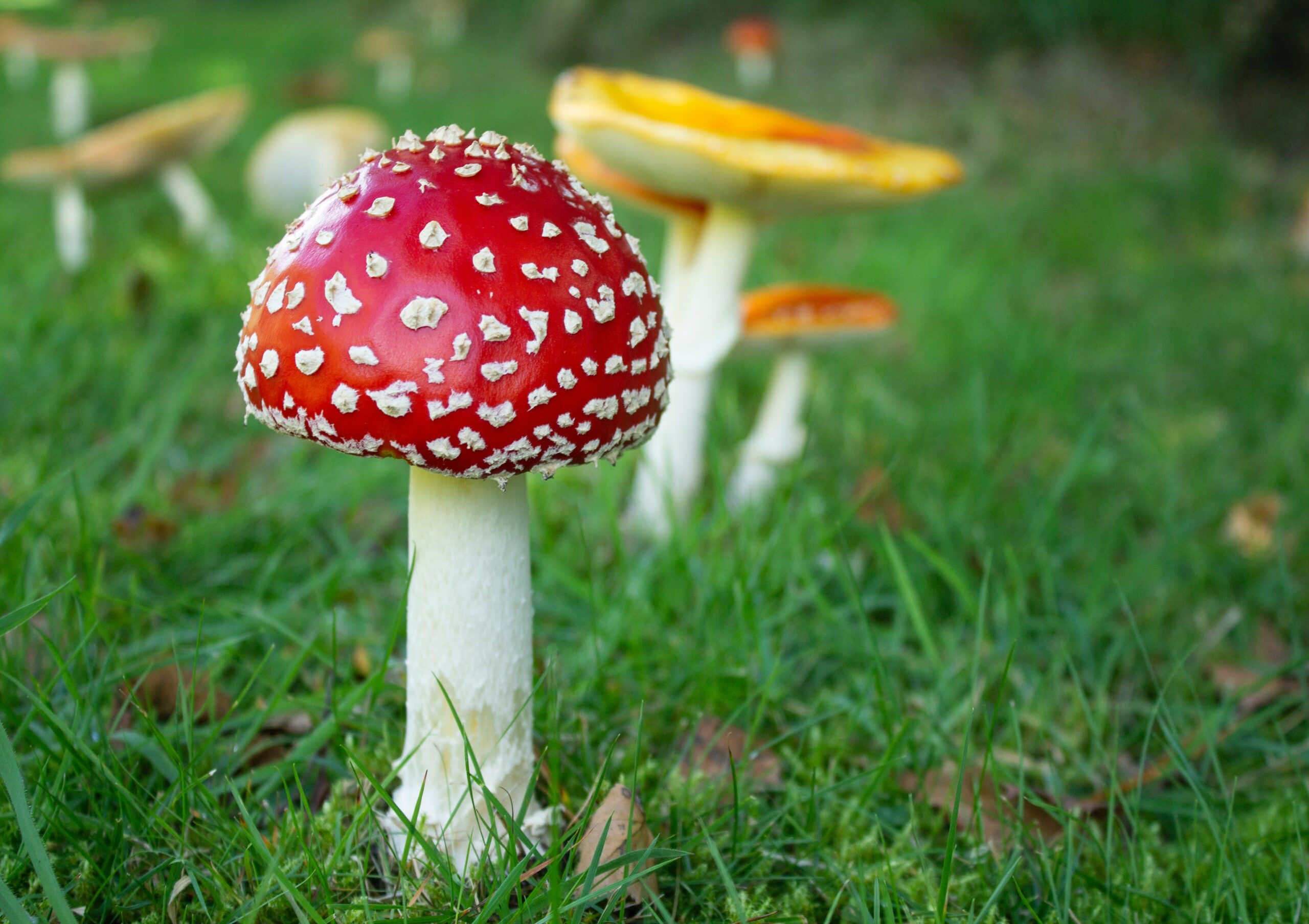Amanita muscaria, also known as fly agaric, is not just a mushroom of fairy tales and folklore but is increasingly recognized for its potential medical applications. Although traditionally regarded for its psychoactive properties, recent research has started to unveil its medicinal potentials, especially in treating anxiety, depression, and neuroinflammatory conditions, among others.
Medicinal Uses and Research Insights
- Neuroinflammatory Conditions: Research has found that Amanita muscaria extract can potentiate the production of pro-inflammatory cytokines by human microglia, suggesting its complex role in neuroinflammatory conditions .
- Mental Health Treatments: Studies suggest that Amanita muscaria’s active compounds, muscimol, ibotenic acid, and muscarine, could have therapeutic effects on the central nervous system. These effects include sedation and psychoactive impacts, which show promise for treating conditions like anxiety and depression. The mushroom’s ability to bind with the brain’s GABA receptors suggests potential benefits for lowering anxiety, enhancing relaxation, and improving sleep quality.
- Anti-inflammatory Properties: Beyond its psychological benefits, Amanita muscaria is being researched for its potential anti-inflammatory properties. This includes investigations into how specific compounds within the mushroom may reduce inflammatory responses, which could have implications for treating autoimmune diseases and related conditions.
- Pain Management: The mushroom has also been explored for its potential in pain management. By activating GABA receptors, which play a crucial role in how pain is perceived, muscimol—a key active compound in Amanita muscaria—has been researched for its effectiveness in treating various types of pain, including muscle tension and neuropathic pain.
Did you know that you can shop for Amanita Muscaria on https://www.mycoteria.com/? That’s a great online store for all your Amanita needs.
Safety and Legality
Despite the promising medical research, Amanita muscaria remains classified as a poison by the Federal Food and Drug Administration (FDA) due to its content of ibotenic acid, considered toxic at high levels. The psychoactive effects and the potential for negative reactions highlight the importance of cautious use and further research. Consumers interested in exploring the therapeutic benefits of muscimol, the mushroom’s primary psychoactive compound, are advised to seek lab-tested muscimol extracts for safety.
Additional Applications
- Neuroprotective Effects: There is ongoing research into the neuroprotective effects of Amanita muscaria, with studies investigating its potential in treating conditions like neuropathic pain, essential tremor, and seizures. However, results remain inconclusive at this stage.
- Recreational Use: Recreational users often describe the experience with Amanita muscaria as spiritual or educational, rather than purely recreational. The mushroom has been used in shamanic cultures for its visionary qualities, and low doses are reported to produce effects similar to being drunk.
Conclusion
Amanita muscaria presents an intriguing blend of historical usage, cultural significance, and emerging scientific interest. As research continues, the mushroom’s potential medicinal benefits become increasingly apparent, offering possible breakthroughs in natural medicine and therapy. However, its toxic components necessitate caution, underlining the importance of responsible use and further scientific exploration to fully understand and leverage its benefits safely.





Be First to Comment